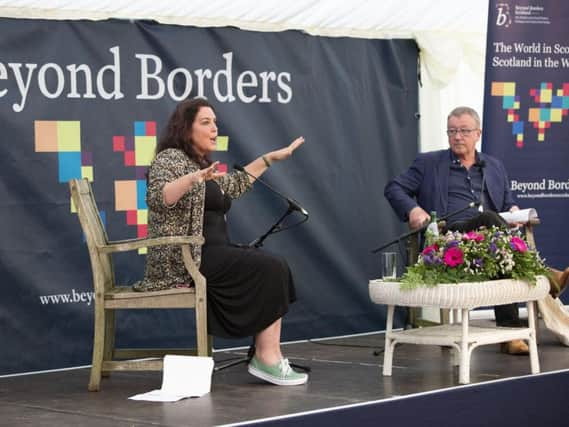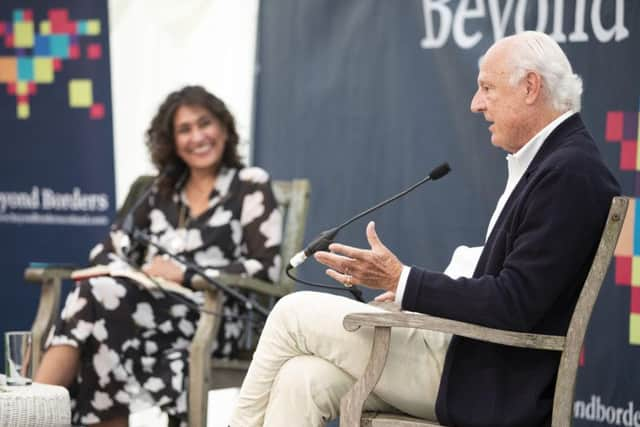Beyond Borders International Book Festival: Pathways to Peace | A Diplomatic Life | Where Next for the United Kingdom?


Beyond Borders International Book Festival, Traquair, Innerleithen
Saturday’s programme in the main tent explored different types of conflict. Classical historian Bettany Hughes in conversation with BBC special correspondent Allan Little looked at Pathways to Peace over the centuries from Roman times, when joining the Mars Boys Club militia was integral to the community cohesiveness, to South Africa’s Peace and Reconciliation Commission.
Advertisement
Hide AdFor Hughes, war and love are similar emotions, fuelled by desire, and the only way to create a better future is to break that cycle. Not so much through forgiveness but by “letting go”, the original meaning of the Greek word “aphiemi”.


In a fascinating insight into how one brings peace to some of the world’s most pressing conflicts, the BBC’s Razi Igbal spoke to Staffan de Mistura, the recently retired United Nations special envoy to Syria. After seeing a young boy shot in front of him in Cyprus, the diplomat turned his childhood ambition of becoming a doctor or fireman towards international issues instead.
He pointed out the importance of listening to civilians, the real victims of war, and assessing the psychology of the people you were negotiating with, for instance looking at the psychological profile and ego of Saddam Hussein. Apparently the Iraqi dictator’s mother tried to abort him after her husband and brother died and, when that failed, abandoned her son.De Mistura also gave an amusing account of how Mother Teresa helped him to break a political impasse so he could fly food into South Sudan’s besieged Juba by calling her friends Ronald and Nancy at the White House. He says it taught him that sometimes there can be simple solutions to complicated problems if you can get to the person who can solve the real issues.
But De Mistura admitted disappointment when the Magic Moment in Syria in 2016, with the potential for a breakthrough in talks between Russia and the US, failed. However, he was positive about the long-term outcome. Some countries are like patients with diseases you can’t treat, he says, but it’s important to keep the patient alive, reduce their pain and give them hope until a cure is found. The session ended with Syrian violinist Mariela Shaker’s poignant performance of Massenet’s Méditation from Thais.
And former Scotsman editor Magnus Linklater led an animated discussion between the BBC’s Sarah Smith and James Naughtie and political commentator Steve Richards about his book The Prime Ministers. In it he compares political leaders from Wilson to May, with the heavyweights from the past, in a far from favourable light.
In the walled garden there were music performances throughout the day and a series of moving exhibitions. These included the work of photographers from the Yemen Art Base, murals from Bogside artists in Londonderry and Josh Haner’s thought-provoking climate change images in The New York Times: Carbon’s Casualties.
Susan Nickalls